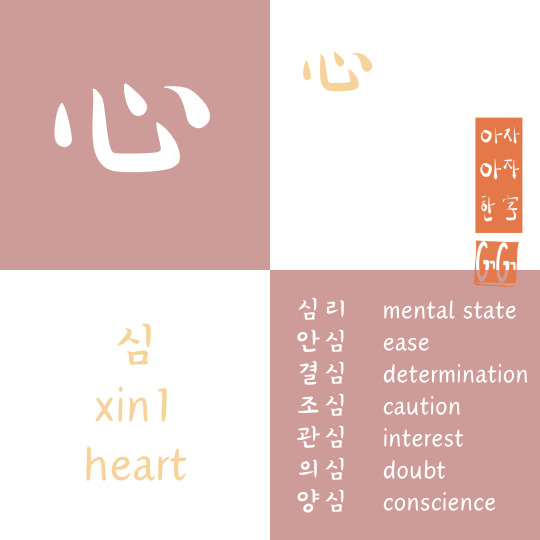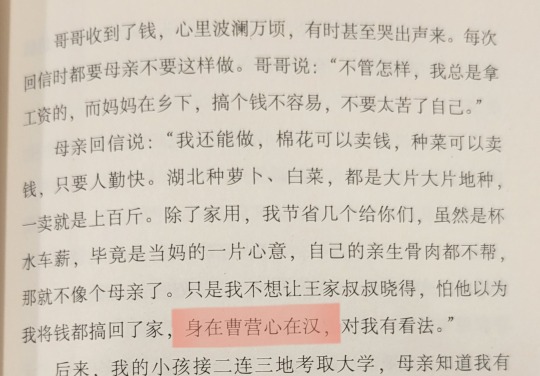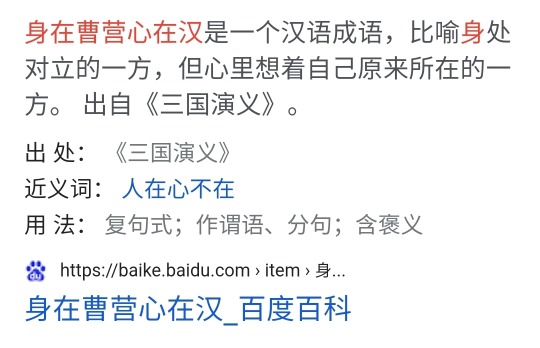#xin1
Text

if you'd like to support me, check out my ko-fi!
character story:
The character 心 is actually an abstraction of an anatomical drawing of a heart!
Study vocab here!
Vocab + explanations:
心, or heart-mind, is a very common character that is also used as a 부수 or radical, a basic character with meaning. It has an alternative form that looks like 忄.
心 is a hugely important concept that represents both the heart and mind. Unlike in Western thought, where the two are separated clearly, early writings from China stress the relation of the emotions and thoughts. Unsurprisingly, many of the words related to 心 are centered around emotion! It is also used to reference the idea of centrality, as in the three below.
中心地[중심지]{hub}———- we learned this one before with 中!
心房[심방]{atrium}—————————— heart x room
點心[점심]{lunch}——————————-point x heart
More commonly, we see reference to emotions, as in these three:
心情[심정]{one’s heart, feelings}——————heart x feeling
心理[심리]{mental state}———— heart x internal logic/essence
心理學[심리학]{psychology}————— mental state x study
The following are all feelings or mental states which can also be used with verbs. Please take note of the verb that should be used in conjunction and note that there are also other possibilities~ (I tried to give the most commonly found helper verb):
+하다
安心[안심]{ease}{be at ease}——————— peace x heart
決心[결심] {determination}{to decide}————- decide x heart
操心[조심]{caution}{to be careful}————— to steer x heart
(無)關心[(무)관심] {(no)interest}{to be (dis)interested}– (no) x concern x heart
疑心[의심]{doubt}{to doubt}——————- to doubt x heart
+이다
熱心[열심]{enthusiasm}{to be enthusiastic}———– heat x heart
眞心[진심]{sincerity}{to be sincere}—————– true x heart
+있다/없다
同情心[동정심]{sympathy}{to be sympathetic} same x feeling x heart
良心[양심]{conscience}{to be conscientious}——— good x heart
野心[야심]{ambition}{to be ambitious}———-open space x heart
自負心[자부심]{self-confidence}{to be confident}– oneself x to bear x heart
自尊心[자존심]{self-respect/pride}{to be proud}– oneself x to honor x heart
慾心[욕심]{greed}{to be greedy}{to be greedy} —— desire x heart
+생기다
好奇心[호기심]{curiosity}{to become curious}— good x unusual x heart
+품다
二心[이심]{duplicity}{to be two-faced}—————————– two x heart
#7lvl#family: heart#family: radical#심#心#xin1#alt:#korea#korean#korean language#korean learning#hanja#korean study#study korean#korean vocabulary#korean langblr#hanja vocab#hanja vocabulary#korean vocab#langblr#language#chinese characters#studyblr#original#ajaajahanja
26 notes
·
View notes
Note
About the rose posts tags - could you write out how 520 sounds like "I love you"? Like the pinyin & pronunciation between the two? thank you!!
It is a close homophone but not exact.
520 = wǔ èr líng
I love you = wǒ ài nǐ (我爱你)
N and L sounds are interchangeable in some Chinese accents/dialects, thus why 0 = 你.
521 (wǔ èr yī) also sometimes is used to mean the same thing. It comes from leetspeak which was popular in the 2000s, I believe. There are other phrases that come from numbers that were used when texting first arose. Grabbed these from zhihu:
17 (yao1 qi1) = 友情 (you3 qing2)
↳ "friendship"
1314 (yi1 san3 yi1 si4) = 一生一世 (yi1 sheng1 yi1 shi4)
↳ "A whole lifetime"
0451 (ling3 si4 wu3 yi1) = 你是唯一 (ni3 shi4 wei3 yi1)
↳ "you're the only one"
04551 (ling2 si4 wu3 wu3 yi1) = 你是我唯一 (ni3 shi4 wo3 wei3 yi1)
↳ "you're my only one"
1930 (yi1 jiu3 san1 ling2) = 依旧想你 (yi1 jiu4 xiang3 ni3)
↳ "still thinking about/missing you"
1920 (yi1 er4 san1 ling2) = 依旧爱你 (yi1 jiu4 ai4 ni3)
↳ "still love you"
2030999 (er4 ling2 san1 ling2 jiu3 jiu3 jiu3) = 爱你想你久久久 (ai4 ni3 xiang3 ni3 jiu3 jiu3 jiu3)
↳ “love you miss you always and forever"
0564335 (ling2 wu3 liu4 si4 san1 san1 wu3) = 你无聊时想想我 (ni3 wu2 liao2 shi2 xiang3 xiang3 wo3)
↳ "When you're bored, think of me"
176 (yi1 qi1 liu4) = 一起走 (yi1 qi3 zou3)
↳ "[let's] go together"
1456 (yi1 si4 wu3 liu4) = 你是我的 (ni3 shi4 wo3 de)
↳ "You're mine"
14567 (yi1 si4 wu3 liu4 qi1) = 你是我老妻 (ni3 shi4 wo3 lao3 qi1)
↳ "You're my old/dear wife"
02825 (ling2 er2 ba1 er4 wu3) = 你爱不爱我 (ni2 ai4 bu4 ai4 wo3)
↳ "Do you love me?"
2013614 (er2 ling2 yi1 san1 liu4 yi1 si4) = 爱你一生又一世 (ai4 ni3 yi1 sheng1 you4 yi1 shi4)
↳ "Love you for life plus a lifetime"
2627 (er4 liu4 er4 qi1) = 爱来爱去 (ai4 lai3 ai4 qu4)
↳ "Love comes and goes"
12746 (yi1 er4 qi1 si4 liu4) = 你恶心死了 (ni3 e3 xin1 si3 le)
↳ "You're nauseating/embarrassing/disgusting as hell"
13456 (yi1 san1 si4 wu3 liu4) = 你相思无用 (ni3 xiang1 si1 wu2 yong4)
↳ "Your pining is useless"
1437 (yi1 si4 san1 qi1) = 你是神经 (ni3 shi4 shen2 jing1)
↳ "You're insane/unhinged"
14517 (yi1 si4 yao1 qi1) = 你是我氧气 (ni3 shi4 wo3 yang3 qi4)
↳ "You are my oxygen"
14535 (yi1 si4 wu3 san1 wu3) = 你是否想我 (ni3 shi4 fou3 xiang3 wo3)
↳ "Do you miss me?"/"Are you thinking about me or not?"
As a side note, there is some number based slang that is not from leetspeak as well. For example, 250 (èr bǎi wǔ) is slang for "idiot" but the origins of this is actually a folktale, so it is from olden times. 233 is often used to express laughter but this is because it was the image id of a laughing emoji from a popular sticker pack back in the day.
#text#answered ask#chinese social media#sort of#long post#i did number accents bc my keyboard turned off the accent shortcuts at some point and idk how to turn it back on/copy pasting is a pain#but doing the numbers pinyin required utmost concentration lol#language ask
518 notes
·
View notes
Text
Kanji of the day: 新
新 - New
Kun: あたら.しい、あら.た、あら-、にい-
On: シン
(pinyin: xīn | xin1 )
Ideographic: A tree 亲, freshly chopped 斤 (axe)
You may be thinking - why use this weird 亲 to represent a tree instead of just the simple, normal 木?
The answer lies in phonetics. To clarify the word in question as much as possible, 辛 (spicy, bitter, pinyin xīn | xin1 ) was added to the tree part 木. Originally this 亲 kanji came to represent a hazelnut tree (pinyin zhēn | zhen1 ), and while it has now lost this original meaning (榛 is now the normal kanji for hazel) this "fruit-bearing tree" meaning stuck around for some of the other words this component still sticks around in (see 親 - parent, relative)
Fun fact 1: Did you know this kanji originally meant firewood? Both "firewood" and "new" were pronounced xīn | xin1 and could be communicated with the ideographic chopped tree, but the "new" meaning was presumably more popular in writing and stuck around - to differentiate, firewood is now written with the 艹 grass radical on top of it 薪 .
Strokes: 13
Radical: 斤 axe
18 notes
·
View notes
Text
Day 30
📖 HSK Standard Course 4上, lesson 8.1
Vocab
巧克力 qiao3 ke4 li4 n. chocolate
亲戚 qin1 qi n. relative, kinsfolk
伤心 shang1 xin1 adj. sad, sorrowful
使 shi3 v. to make, to cause
心情 xin1 qing2 n. mood, state of mind
愉快 yu2 kuai4 adj. glad, cheerful
景色 jing3 se4 n. scene, view
放松 fang4 song1 v. to relax
压力 ya1 li4 n. pressure, stress
回忆 hui2 yi4 v. to call to mind, to recall
发生 fa1 sheng1 v. to happen, to take place
成为 cheng2 wei2 v. to become
只要 zhi3 yao4 conj. as long as, provided
师傅 shi1 fu n. a polite title for one with accomplished skills in a trade or handicraft
大使馆 da4 shi3 guan3 n. embassy
堵车 du3 che1 v. traffic jam
距离 ju4 li2 n. distance
耐心 nai4 xin1 n. patience
Grammar
1. 使
The verb 使 means "to make, to cause", similar to 让; it is usually used in written Chinese.
她看都没看过我一眼,怎么样才能使她喜欢我呢?
在中国生活的三年使他再音乐方面有了很多新的想法。
听说伤心难过的时候吃块儿巧克力,还能使人的心情变得愉快。
2. 只要
The conjunction 只要 is often used in the structure 只要··· 就···, with the clause after 只要 stating an essential condition and that after 就 indicating the result of this condition.
只要这次你好好儿准备,一定能把比赛踢好。
只要你用心就会发现,身边有那么多有意思的事情,有那么多不一样的生活。
每个人对幸福有不同的理解,对我来说,只要能做自己喜欢的事,就是幸福。
3. 可不是
The adverb 可不是 is used to agree with or echo what the other party has said. It is often used alone as a sentence. We can also use 可不 instead.
A: 没想到咱们毕业都已经十年了。- B: 可不是!时间过得太快了,真想大家。
A: 遇到堵车,心情也 “堵”。- B: 可不是!上班堵车怕迟到,下班堵车怕回家晚。
A: 这家网球馆的服务不错,给我的印象很好。- B: 可不是!这儿不仅环境好,还免费提供吃的和水,打球大累的时候,可以吃点儿东西休息一下。
🎶 a playlist for a melancholic winter
0 notes
Audio
【黑色天空】,路嘉欣 (2002) [X]
Lyrics
百分之99的你属于我 剩下的实在已经不多
bǎi fēn zhī 99 de nǐ shǔyú wǒ shèng xià de shízài yǐjīng bù duō
可是我却隐隐约约觉得失落 有什么事你不告诉我
kěshì wǒ què yǐnyǐn yuē yuē juédé shīluò yǒu shé me shì nǐ bù gàosù wǒ
不必等全世界都背叛我 我感觉哪里不对却说不出口
bùbì děng quán shìjiè dōu bèipàn wǒ wǒ gǎnjué nǎlǐ bùduì quèshuō bu chūkǒu
没有力气再问你 你会说服我 好像都是我的错 我不应该想太多
méiyǒu lìqì zài wèn nǐ nǐ huì shuōfú wǒ hǎoxiàng dōu shì wǒ de cuò wǒ bù yìng gāi xiǎng tài duō
反复的梦 黑色天空 在你怀中 谁的脸孔
fǎnfù de mèng hēisè tiānkōng zài nǐ huái zhōng shéi de liǎn kǒng
我说不出话 那不是我 你却都听不见我的心痛
wǒ shuō bu chū huà nà bùshì wǒ nǐ què dōu tīng bùjiàn wǒ de xīntòng
我反复的梦 黑色天空 你的浪漫冲动都不再属于我
wǒ fǎnfù de mèng hēisè tiānkōng nǐ de làngmàn chōngdòng dōu bù zài shǔyú wǒ
你陪着我 心却不断逃走 你只留给我黑色天空
nǐ péizhe wǒ xīn què bùduàn táozǒu nǐ zhǐ liú gěi wǒ hēisè tiānkōng
百分之1的时间想什么 想着你的不安和自由
bǎi fēn zhī 1 de shíjiān xiǎng shénme xiǎngzhe nǐ de bù'ān hé zìyóu
却不在乎分分秒秒真实生活 其实只有我陪你渡过
què bùzàihū fēn fēn miǎo miǎo zhēnshí shēnghuó qíshí zhǐyǒu wǒ péi nǐ dùguò
不必等全世界都背叛我 明知道哪里不对却说不出口
bùbì děng quán shìjiè dōu bèipàn wǒ míng zhīdào nǎlǐ bùduì quèshuō bu chūkǒu
没有力气再问你 你会说服我 好像都是我的错 我不应该想太多
méiyǒu lìqì zài wèn nǐ nǐ huì shuōfú wǒ hǎoxiàng dōu shì wǒ de cuò wǒ bù yìng gāi xiǎng tài duō
反复的梦 黑色天空 在你怀中 谁的脸孔
fǎnfù de mèng hēisè tiānkōng zài nǐ huái zhōng shéi de liǎn kǒng
我说不出话 那不是我 你却都听不见我的心痛
wǒ shuō bu chū huà nà bùshì wǒ nǐ què dōu tīng bùjiàn wǒ de xīntòng
我反复的梦 黑色天空 你的浪漫冲动都不再属于我
wǒ fǎnfù de mèng hēisè tiānkōng nǐ de làngmàn chōngdòng dōu bù zài shǔyú wǒ
你陪着我 心却不断逃走 你只留给我黑色天空
nǐ péizhe wǒ xīn què bùduàn táozǒu nǐ zhǐ liú gěi wǒ hēisè tiānkōng
其实只有我陪你渡过 其实只有我陪你渡过
qíshí zhǐyǒu wǒ péi nǐ dùguò qíshí zhǐyǒu wǒ péi nǐ dùguò
其实只有我陪你渡过 其实只有我陪你渡过
qíshí zhǐyǒu wǒ péi nǐ dùguò qíshí zhǐyǒu wǒ péi nǐ dùguò
0 notes
Text
Found a fun new phrase today:

身在曹营心在汉 shen1 zai4 cao2 ying2 xin1 zai4 han4: lit. live in the Cao camp but have the heart in the Han camp, fig. to be somewhere while longing to be somewhere else; a similar phrase is 人在心不在
It originates from 《三国演义》

65 notes
·
View notes
Text
Coronavirus article: vocab in Chinese pt. 1
In the hope of getting back into the swing of making original content again, but also being very busy, these will be a little shorter than usual but hopefully still helpful!
Link to full article: https://www.bbc.com/zhongwen/simp/science-55408605
新冠病毒变种:对引发担忧的英国病毒突变我们知道什么
随着新冠变种病毒迅速传播,英国已实施严格的第四级限制令,影响了数千万人。同时,全球许多国家宣布禁止英国旅客入境。
在这几个月的时间内,这个变种病毒如何从不存在,变成了英格兰部分地区最常见的变种病毒呢?英国政府的专家顾问说,他们有“高度把握”,认为这个变种病毒“比其他病毒变种更容易传播”。
General coronavirus vocabulary:
病毒 - bing4 du2 - virus
变种 - bian4 zhong3 - mutation, change
新冠病毒 - xin1 guan1 bing4 du2 - coronavirus (casual abbreviation)
突变 - tu1bian4 - sudden change, mutation
传播 - chuan2 bo1 - transmit, spread
Article vocabulary:
引发 - yin3 fa1 - cause
担忧 - dan1you1 - concern
迅速 - xun4 su4 - high-speed, quick
实施 - shi2 shi1 - implement, put into place
宣布 - xuan1bu4 - announce, proclaim
专家 - zhuan1 jia1 - expert
入境 - ru4 jing4 - enter the borders (of a country)
顾问 - gu4 wen4 - consultant
把握 - ba3 wo4 - grasp, control (of a situation)
Useful sentences:
禁止英国旅客入境 - ban UK travellers from entering the country
第四级限制令 - tier four restrictions (限制 - restrict, 令 - command, order)
高度把握 - high grasp, level of control
- 梅晨曦
#finally#a vocab list after however long#this might be a good idea#to make them shorter in the future#that way I might actually make them lmao#coronavirus#covid-19#chinese langblr#chinese studyblr#vocab list#vocabulary#Chinese vocabulary
78 notes
·
View notes
Text
Random Phrases
From my lesson on 工作 (gong1 zuo4) (jobs)
Main Vocab
Departments
部门 – bu4 men2 (department)
人力资源部 – ren2 li4 zi1 yuan2 bu4 (HR)
市场部 – shi4 chang3 bu4 (marketing)
财务部 – cai2 wu4 bu4 (finance/accounting)
技术部 – ji4 shu4 bu4 (technology/IT)
销售部 – xiao1 shou4 bu4 (sales)
运营部 – yun4 ying2 bu4 (operations)
Job titles
职位 – zhi2 wei4 (job title)
员工 – yuan2 gong1 (employee)
*note: my 老师 said that most job titles are broken into two parts: position + level. I’ll denote this split with a | below.
工程师 – gong1 cheng2 shi1 (engineer)
招聘 | 专员 – zhao1 pin4 zhuan1 yuan2 (recruiter) -> 专员 = entry level/starting position
广告策划 | 专员 – guang3 gao1 ce4 hua4 zhuan1 yuan2 (advertiser)
客户 | 经理 – ke4 hu4 jing1 li3 (client manager) -> 经理 = manager
财务 | 总监 – cai2 wu4 zong3 jian1 (finance director) -> 总监 = director
Words and example sentences to describe what each department/job title does
HR (人力资源部):
有三个面试 – you3 san1 ge mian4 shi4 (have 3 interviews) -> note: 面试 can either be a noun or a verb (to interview)
Marketing (市场部):
我们的客户 (client) 很喜欢我们的新产品 (product) – wo3 men2 de ke4 hu4 hen3 xi3 huan wo3 men2 de xin1 chan3 pin3 (our clients like our new product)
Finance/Accounting (财务部):
这个广告 (advertisement) 的预算 (yu4 suan4) 是多少 (all this, expressing an unspecified amount or number) - zhe4 ge guang3 gao1 de yu4 suan4 shi4 duo1 shao3 (this advertisement budget is this much).
Technology (技术部):
我们设计(design)了一个新的手机App – wo3 men2 she4 ji4 le yi1 ge4 xin1 de shou3 ji1 App (We designed a new cell phone App). (Note: App in China is said “A-P-P”)
Sales (销售部):
我们可以用手机微信 (WeChat) 进行 (to do) 宣传 (promotion) - wo3 men2 ke3 yi3 yong4 shou3 ji1 wei2 xin4 jin4 xing2 xuan1 chuan2 (We can use the phone App WeChat to do promotions/to promote).
Other vocab from the lesson (coming soon in a separate post as this one is getting a little too long)
24 notes
·
View notes
Text
天潢贵胄 notes
“他也是岭南王唯一的嫡亲儿子!和你一样是天潢贵胄!” [ch 13]
祁骁 (qi2 xiao1), the crown prince
birthday: 腊月初十
18/20 (?) years old
“心中有丘壑” [ch 2]
平日住在宫外的府邸中,十六岁就建府 [ch 5]
海晏殿 (hai3 yan4 palace) 离乾清宫不远
江德清;总管太监
has been serving qi xiao for many years
喜祥 backstory in ch 7
敦肃长公主 (grand princess dun1 su4); paternal aunt (嫡亲姑母)
just over 40, older than the emperor by 10 years
祁骁最亲厚的人
身为中宫嫡女
husband: 贺钰春 (he4 yu4 chun1)
3 sons, 2 daughters, first two sons have married & have families, oldest daughter has married last year / is betrothed, youngest son is 9
贺芬华 (he4 fen1 hua2); first daughter
married to 伯安郡王, has 2 sons
样貌好,不是那中看不中用的,有个好招牌,身价水涨船高 [ch 78]
贺芳华 (he4 fang1 hua2); second daughter 14/11 (?) years old this year, soon to reach marriageable age
毓秀殿 (yu4 xiu4 palace),自幼长大的宫阙 ,嫡公主的宫殿
没出嫁前一直住在凤华宫中
“[祁靖]和武帝都是我看着长大的,什么记不得?” [ch 1]
夫家是皇城中的大族,世代簪缨,在朝中很有势力 [ch 6]
宏慈皇后 (empress hong2 ci2); 太宗皇后
文帝; qi xiao’s grandfather
孝钦皇后 (empress xiao4 qin1) / 敬和皇后 (empress jing4 he2); qi xiao’s grandmother
惠老王爷 (hui4); 太宗庶子
文帝最小的弟弟
颇受太宗宠爱,及冠后虽也赐了封地,但一直没让他去封地上,一直在京中住着,没什么实权,但食邑颇丰,在京中很有些名望 [ch 67]
武帝; late emperor (history in ch 4)
当年岭南同皇城联手抗北狄,北狄王暴戾,数犯邻国边境, 武帝同岭南王一起讨伐北狄,这一仗一打就是三年
传闻武帝骁勇善战,且为人睚眦必报,一心要除掉北狄之患
最后一战时武帝中了一箭,大胜后没回到大襄就驾崩
大襄开国以来最善战的皇帝,凭着皇帝登基近二十年,到现在都没能将兵权全部揽过来 [ch 18]
孝贤皇后 (empress xiao4 xian2) / 孝仁皇后 (empress xiao4 ren2); late empress
和敦肃长公主之间亲密和默契 [ch 18]
just turned 20 when she died
冯皇后 (empress feng2) / 成王妃 (princess consort cheng2); the current empress
只有祁骅一个嫡出
皇帝对她敬重有余,宠爱不足
冯氏娘家门第并不高
凤华宫 (feng4 hua2 palace)
善妒 (shan4 du4); empress feng’s older sister
庶子庶女婚嫁之事上没一个有好结果的
冯逸山 (feng2 yi4 shan1); 冯府老太爷
为了给儿子冯国忠让路,早早就告老
冯老太太走的早 [ch 30]
冯国忠 (feng2 guo2 zhong1); 冯皇后的哥哥
方氏 (fang1 shi4); 冯皇后嫂子
冯府二品诰命
younger than empress feng by 5 years, looks 30
德馨长公主 (grand princess de2 xin1)
庶出
祁靖 (qi2 jing4); the emperor
自登基以来休养生息,一力弥补武帝连年征战耗的亏空,这几年国库丰盈了许多
皇帝因生母早逝,襁褓中就被抱到了凤华宫中由中宫皇后亲自养育,那会儿敦肃长公主就待皇帝很好,说句长姐如母也不为过
三岁母妃走得早,敬和皇后可怜他没了娘,就将他抱到了自己宫里同嫡长子武帝一起养着 [ch 93]
married when just turned 16
承乾宫 (cheng2 qian2 palace)
乾清宫 (qian2 qing1 palace) (?) (晚宴)
福海禄 (fu2 hai3 lu4); 乾清宫首领太监
太和殿 (tai4 he2 palace) (?) (大理寺卿)
祁骅 (qi2 hua2); the second prince
“ 是个不中用的 “ [ch 2]
16 years old
前年府上都养着娈宠 [ch 13]
昭阳殿 (zhao1 yang2 palace)
祁骍 (qi2 xing1) / 祁骐 (qi2 qi2); the third prince
前年府上都养着娈宠 [ch 13]
薛贵妃 (noble consort xue1)
母家在朝中也很有势力,年轻,这些年一直很受宠
雍华宫 (yong1 hua2 palace)
祁骊 (qi2 li2); the fourth prince
年满十二 [ch 102]
姜 (jiang1) 贵人
裕隆宫 (yu4 long2 palace)
老五, 水云殿
岭南 (ling3 nan2); 异姓王的封地,历代大襄皇帝的心腹大患 (history in ch 2)
东陵百刃 (bai3 ren4); 岭南世子,质子
15 years old
岭南王府河清阁
许他每日进宫来诲信院 (hui4 xin4) 听讲
东陵奕 (dong1 ling2 yi4); 岭南王
岭南王妃
父亲兄长当年全在瓮溪战死,无娘家可依
柔嘉郡主 (princess rou2 jia1); 百刃的嫡亲姐姐
16 years old
夏氏;岭南王侧妃 / 宠妃
3 sons, 1 daughter
youngest son is 7
东陵文钰 (wen2 yu4); 百刃的庶出弟弟
15 years old
比百刃只小三个月
康泰郡主 (princess kang1 tai4); 庶出
岭南王的掌上明珠
14 years old
岑朝歌 (cen2 zhao1 ge1); 百刃的伴读
岭南文相岑海禄 (cen2 hai3 lu4) 的长子,岑海禄的发妻是岭南王妃的表妹
百刃往外传消息的暗哨
董博儒 (dong3 bo2 ru2); 百刃早逝的外祖留给他的谋士
看着百刃和他姐姐长大
#天潢贵胄#to keep track of info / thoughts#even though i'm only in the first handful of chapters akjdsjkajkask#i got past them not searching up terms and going w/ the flow#now i'm regretti and diligently going back to understand the things#it's quite fun#doing dis also to hold myself accountable hahahhahaha#it's an okay length book but still kinda long#111 chaps + 5 番外 & a word length smaller than zhenhun's by a comfortable margin#i've read too many cnovels and got joy out of them by not taking them seriously#the last novel i properly read and put my srs feelings & thoughts into#is probably 刺刀 :///#nothing since then gave me a proper indulgent experience#partly bc i've been rushing through things in search for the One True Novel#that satisfies my short list of needs#i've decided that i'll give this novel a proper chance!! and i'll follow through as much as i can!!#immersing in the story and feeling out / for the characters properly#instead of just flying through it like wheeee (1) second gratification and then#just#throwing the whole story & characters aside 5ever aksdskajdjka#also the first cnovel that's not 穿越 that i found myself#it 主攻 too /justright#text#me is mark
2 notes
·
View notes
Text
Day 29
📖 HSK Standard Course 4上, lesson 7.2
Vocab
指 zhi3 v. to refer to
精神 jing1 shen2 n. spirit, mind
教授 jiao4 shou4 n. professor
数字 shu4 zi4 n. number
说明 shuo1 ming2 v. to explain, to show
要是 yao4 shi conj. if, supposing
既 ji4 adv. (used together with 又) both... and...
减肥 jian3 fei2 v. to lose weight
辛苦 xin1 ku3 adj. hard, toilsome
肚子 du4 zi n. belly, stomach
感情 gan3 qing2 n. affection, love
烦恼 fan2 nao3 adj. worried, vexed
掉 diao4 v. used after certain verbs, indicating the result of an action
Grammar
4. 要是
The conjunction 要是 means "if, incase", usually used in the structure 要是······, 就······, in which 要是 introduces a sentence indicating an assumption, and 就 introduces a sentence indicating the action or result consequent upon the assumed situation.
要是健康是1,其他都是1后面的0。
要是你想来中国的大学留学,和中国学生一起学习专业课,那么就需要做好这些准备。
要是质量比别人的好的话,那么价格贵一点儿也是可以接受的。
5. 既······又/也/还······
The set of conjunction 既······又/也/还······ is used to connect two verbal structures or adjectives (usually the same in structure), indicating two situations, both positive or both negative, existing at the same time.
散步是生活中最简单的锻炼方法,既可以活动身体,又可以减肥。
成功离不开交流,交流自然需要说话。会说话的人既容易交到朋友,也容易获得成功。
他那个人做事既不认真,动作还慢,这个工作这么重要,还是让本人做吧。
🎶 Sa Huỳnh's Bão hòa.
0 notes
Video
youtube
Vocab: 《绅士》- 薛之谦
薛之谦 Xue1 Zhi1 Qian1 -- Joker Xue (singer)
细心(細心)xi4 xin1 – very careful, attentive
装扮(裝扮)zhuang1 ban4 – to pretend; to disguise; to dress up
袖扣 xiu4 kou4 – cufflinks
暴露 bao4 lu4 – to expose, to reveal
自欺欺人 zi4 qi1 qi1 ren2 – to deceive oneself as well as others
言不由衷 yan2 bu4 you2 zhong1 – to say something without meaning it
试探(試探)shi4 tan4 – to feel out (someone’s opinion)
绅士(紳士)shen2 shi4 – gentleman
尺度 chi3 du4 – criteria, standard, yardstick
善解人意 shan4 jie3 ren2 yi4 – to be considerate and understanding
马路那头(馬路那頭)ma3 lu4 nei4 tou2 – that side of the road
皱(皺)zhou4 – to wrinkle, to crease; a wrinkle
还原 ( 還原 ) huan2 yuan2 – to return to original state
放得下 fang4 de xia4 – to let go, to (be able to) put down
mandarin lyrics can be found here
#mandarin vocab#mandarin vocabulary#chinese vocab#chinese vocabulary#chinese langblr#mandarin langblr#mandarin chinese#mandarin chinese langblr#mandopop#joker xue#langblr#mine#queue
1 note
·
View note
Text
Some time back I watched the film 后来的我们 (stars Jing Boran and Zhou Dongyu) which has a couple of good songs. I made a vocabulary list for one of the songs I really liked. Hebe Tien’s 很久爱的朋友. You can listen to the song here.
1. 气球 (qi4 qiu2) ballon
2. 追逐 (zhui1 zhu2) to chase
3. 怀念 (huai2 nian4) to cherish the memory of
4. 释放 (shi4 fang4) to set free
5. 可笑 (ke3 xiao4) funny, ridiculous
6. 模糊 (mo2 hu) vague, fuzzy
7. 泪水 (lei4 shui3) tear drop
8. 补救 (bu3 jiu4) to remedy
9. 伤疤 (shang1 ba1) scar
10. 心头 (xin1 tou 2) mind, heart
11. 问候 (wen4 hou4) send respects/regards to someone
12. 内疚 (nei4 jiu4) guilty
13. 就此 (jiu4 ci3) at this point
14. 停留 (ting2 liu2) stop, stay for sometime
15. 何必 (he2 bi4) no need to, why
16. 青春 (qing1 chun1) youth, youthfulness
17. 将就 (jiang1 jiu) make the best of
#mandarin#learning mandarin#后来的我门#田馥甄#中文#学习中文#汉语歌#mandarin vocabulary#Chinese pop#netflix#周冬雨#井柏然#jing boran#zhou dongyu
56 notes
·
View notes
Text
空档 「空檔」 kong4 dang4 gap or interval of time (between turns), opening in one’s schedule, free time
插图 「插圖」 cha1 tu2 illustration
出没 「出沒」 chu1 mo4 to come and go, to roam about (mostly unseen), (of a ghost) to haunt (a place), (of the sun) to rise and set
征服 zheng1 fu2 to conquer, to subdue, to vanquish
厨余 「廚餘」 chu2 yu2 kitchen waste, food waste
维持生活 「維持生活」 wei2 chi2 sheng1 huo2(abbreviation: 维生 「維生」 wei2 sheng1) to subsist, to eke out a living, to keep body and soul together
亲近 「親近」 qin1 jin4 intimate, to get close to
速写 「速寫」 su4 xie3 quick sketch
更迭 geng1 die2 to alternate, to change
丰饶 「豐饒」 feng1 rao2 rich and fertile
轻便 「輕便」 qing1 bian4 lightweight and portable, light and convenient
比拟 「比擬」 bi3 ni3 to compare, to draw a parallel, to match, analogy, metaphor, comparison
尽情 「盡情」 jin4 qing2 as much as one likes
规格 「規格」 gui1 ge2 standard, norm, specification
扎根 zha1 gen1 to take root
洗礼 「洗禮」 xi3 li3 baptism (literal or figurative)
驾驭 「駕馭」 jia4 yu4 to urge on (of a horse), to drive, to steer, to handle, to manage, to master, to dominate
骛远 「騖遠」 wu4 yuan3 over ambitious
贪心 「貪心」 tan1 xin1 greedy
#langblr#mandarin langblr#chinese langblr#polyglot#tongueblr#mandarin chinese#learn mandarin chinese#learn chinese#mandarin chinese vocabulary#mandarin vocabulary#mine#m vocab
23 notes
·
View notes
Text
中文- five radicals/day
Day 4 of learning radicals and I am really fascinated by these characters and their history.
I must say, Chinese is quite difficult but I am really proud of myself for sticking with it. I am also very blessed with the friendships I have made while learning this language. Everyone is so kind and willing to help! Keep going!!
艹 (no pronunciation) - grass radical
艺 (yi4) - art (skill)
亿 (yi4) - a hundred million
忄 (xin1) - side-heart radical
忆 (yi4) - to remember
3 notes
·
View notes



